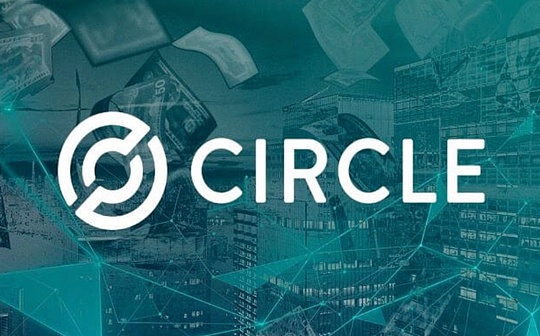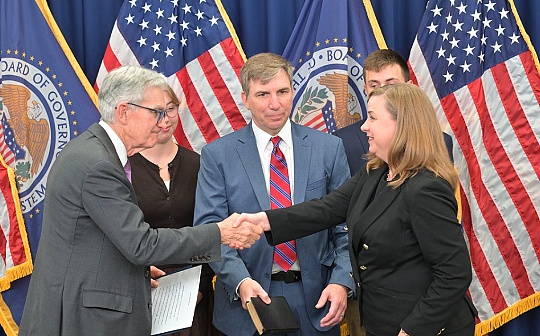US SEC Chairman "greats the green light", is DeFi Summer about to make a comeback?

Reprinted from chaincatcher
06/10/2025·7DCompiled: Rhythm BlockBeats
Original text:Remarks at the Crypto Task Force Roundtable on Decentralized Finance
Editor's note: On June 10, according to the DeFi Education Fund, the US SEC Cryptomatic Working Group held a roundtable meeting on "DeFi and the American Spirit" today. At the beginning of the roundtable, Atkins, chairman of the US SEC, talked about how decentralized finance (DeFi) fits with American values: "Economic freedom, private property rights and innovative American values are the core genes of the decentralized finance (DeFi) movement." In addition, Atkins Chairman stressed that developers of neutral tools should not be held responsible for the actions of third parties.

Thank you everyone, good afternoon. I feel very honored to be with you today. First, I would like to thank the Member Peirce and the Cryptocurrency Task Force for organizing this event, as well as the participation of Member Crenshaw and Uyeda. Of course, I also very grateful to all the guests and hosts of the Roundtable Forum, Troy Parades, for your voluntary investment in time and talent for supporting our work.
Today's roundtable theme is "DeFi and the American Spirit". This is an appropriate title because the core values of economic freedom, private property rights and innovation are deeply embedded in the genes of the decentralized financial movement. As a creative disruptive technology, blockchain is promoting us to fundamentally reconstruct the methods of transfer and confirmation of intellectual property rights and economic property rights. Through the shared database of blockchain, allowing users to own digital assets called crypto assets without relying on intermediaries or centralized methods, and incentivizing participants to follow network rules to maintain database integrity. This is an example of a free system market; users pay fees based on supply and demand relationships, so that transactions are included in "blocks" with limited storage capacity.
The last government has used litigation and regulatory threats to imply that pledge-as-a-service providers may be involved in securities trading, which essentially hinders U.S. citizens from participating in the market-oriented system. The Securities and Exchange Commission Corporate Finance Department, which voluntarily participates in the Proof of Work or Proof of Stake Network, as a miner, verifier or pledge service provider, should not be included in the jurisdiction of the federal securities laws. It is only for regulatory guidance, and no rules with legal effect have been formed. The Securities and Exchange Commission urgently needs to advance the legislative process based on Congress’ authorization.
The right to self-custody of private property, that is, the individual has the right to manage and control the property they legally own without any external intervention. As the cornerstone of the founding of the United States, it should not die due to Internet access. It advocates giving market participants greater flexibility and autonomy, especially when intermediaries strengthen unnecessary transaction costs or restrict users from participating in on-chain activities such as pledge.
The last government declared through regulatory actions that developers of on-chain technologies such as self-custodial digital wallets may engage in securities brokerage activities, a move that curbs technological innovation in related fields. It is obviously unreasonable for engineers to be bound by federal securities regulations only for publishing such software codes. This regulatory logic has been clearly denied in Risley v. Universal Navigation Inc. (2025 WL 615185): Engineers to be bound by securities regulations only for publishing software codes only. The core principle of the establishment of the judgment states that "just as autonomous driving system developers do not need to bear responsibility for third parties to use vehicles to commit traffic violations or bank robbery, technical tool providers should not bear joint and several liability for others to abuse the on-chain tools. The accountable subject under the Securities Law should be the person who actually controls user assets and performs specific violations, rather than the underlying technology developers."
Currently, many entrepreneurs are focusing on developing autonomous software applications that do not require operator management. This type of self-executing code with the following characteristics: universal accessibility, no center controller, support for private point-to-point transactions - although it seems to be sci-fi, blockchain technology is making such new, non-intermediary software a reality. I firmly argue that we should not allow the regulatory framework formulated a hundred years ago to hinder these technological innovations that may subvert and more importantly substantially improve and upgrade existing financial intermediary models. We cannot refuse to move forward because we are afraid of the future.
After stress testing, such on-chain autonomous systems demonstrate structural stress resistance. In recent market turmoil and centralized platforms have frequently collapsed, most on-chain systems are still strictly following the open source protocol design and continue to operate. An empirical analysis of the S&P Global Rating Report ( June 2023) confirms that the collapse of many centralized financial (CeFi) institutions in 2022 exposed their risk management defects, governance shortcomings and inter-institutional infectious risks. At the same time, in sharp contrast, the overall decentralized financial (DeFi) protocol resists the impact, the reversal ratio of major mortgage lending platforms is approaching zero, and the trading volume of decentralized exchanges continues to grow. "
The current securities regulatory rules system is constructed on the premise of regulating issuers and intermediary institutions (including brokerage dealers, investment consultants, exchanges, clearing institutions, etc.). Rulemakers may not have foreseeed the situation of self-executing code or replacing such subjects at that time. Therefore, committee staff have been asked to study whether further guidance or rules should be introduced, whether additional regulatory guidelines or amendment to existing regulations are required to enable registered entities to trade with these on-chain systems in compliance with the law.
I also use on-chain systems for issuers and intermediaries to eliminate economic frictions, improve capital efficiency, develop new financial products and enhance liquidity potential. Current securities regulations have included considerations for the use of new technologies, but I have asked staff to evaluate whether the Commission rules need to be revised to provide more targeted adaptive adjustment solutions for registered entities of the financial system on the operation chain.
During the period when the Securities and Exchange Commission and its staff formulated special rules for on-chain financial markets, the working team has been instructed to study the establishment of a "conditional exemption mechanism" (or "innovation exemption channel"), aiming to enable registered and non-registered entities to accelerate the launch of on-chain financial products and services. The exemption mechanism encourages developers, entrepreneurs and related institutions to develop technology in the United States through setting compliance innovation conditions, thereby promoting President Trump's policy vision of " making the United States a core hub for global crypto assets" by setting compliance innovation conditions, thus encouraging President Trump's policy vision to "make the United States a core hub for global crypto assets "
Thank you for listening, and I look forward to the discussion ahead.


 jinse
jinse

